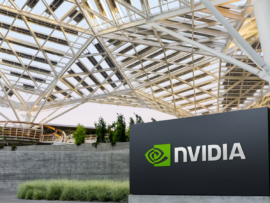Source: www.techrepublic.com – Author: Liz Ticong
NVIDIA has been called in by Chinese regulators over claims that its H20 AI chip poses security risks, putting billions in potential sales at stake.

Beijing has hauled in NVIDIA over explosive claims that its H20 AI chips could secretly track users or be shut down remotely, which is a sharp blow just weeks after US export restrictions were eased.
As reported by The New York Times, China’s top internet watchdog summoned the US chipmaker to address what it calls “backdoor security” risks tied to the H20, a chip tailored for China’s AI sector. The inquiry throws immediate scrutiny on NVIDIA’s return to the Chinese market after the Trump administration reversed course on a previous sales ban.
What drew China’s suspicion
Though not the most powerful chip in NVIDIA’s portfolio, the H20 has been widely adopted by Chinese tech companies seeking to scale up AI capabilities. It was built to meet tightened trade guidelines while remaining viable for advanced computing tasks.
China’s Cyberspace Administration suspects the chip may include concealed functions that could compromise user security, per The Times. Regulators have asked the $4 trillion chipmaker to submit technical details clarifying whether the hardware enables location tracking or remote disablement.
NVIDIA’s spokesperson Sarah Weinstein has rejected the claim that its H20 chip includes any kind of remote access mechanism, calling cybersecurity “critically important” and stating that there are no “backdoors” in its hardware.
Did Trump’s plan backfire?
The controversy surrounding the H20 may be an unintended consequence of US policy. Earlier this year, the Trump administration threw its support behind the Chip Security Act, which mandates that advanced chips for export have hardware safeguards like location verification and tamper detection.
The law calls for manufacturers to embed tools that can confirm where a chip ends up, detect unauthorized use, and report if its built-in controls are bypassed. These compliance features, meant to prevent foreign misuse, are now at the center of a growing backlash.
What Washington framed as a necessary layer of protection, Beijing appears to see as a liability, helping trigger the very concerns now threatening NVIDIA’s foothold in China.
No NVIDIA? No problem
China had already begun hedging its bets before the H20 faced regulatory fire. In April 2025, Huawei unveiled the Ascend 920 for local companies that may be forced to seek alternatives to NVIDIA following the now-lifted US ban on H20 chip sales to the country.
Designed on a 6-nanometer process, the Ascend 920 chip offers strong performance and ultra-fast memory speeds, making it a serious alternative for Chinese companies. Huawei is expected to begin mass production in the second half of 2025.
This reflects a simple reality: China has options, and it’s prepared to lean on them.
The cost of pulling back
While Beijing builds toward chip independence, NVIDIA still draws a massive share of revenue from the market now questioning its hardware. Analysts estimate that NVIDIA’s sales from China could climb significantly in its 2026 fiscal year, with projections pushing the total close to $20 billion, up from roughly $17 billion the year before.
If China were to introduce formal restrictions, the fallout would go well beyond a single product line. For NVIDIA, losing ground in the country would be measured in billions.
As NVIDIA faces scrutiny, Chinese AI companies are building alliances to limit their dependence, and they’re moving fast.

Liz Ticong
Liz Ticong is a staff writer with more than 10 years of experience covering technology, software, and news. She’s written about AI, cybersecurity, data, and various software products for Datamation, Enterprise Networking Planet, and TechnologyAdvice.com, and has ghostwritten for international clients.
Original Post URL: https://www.techrepublic.com/article/news-china-investigates-nvidia-h20-chips-backdoor-security-risks/
Category & Tags: APAC,Artificial Intelligence,Hardware,International,News,Security – APAC,Artificial Intelligence,Hardware,International,News,Security
Views: 5




















































